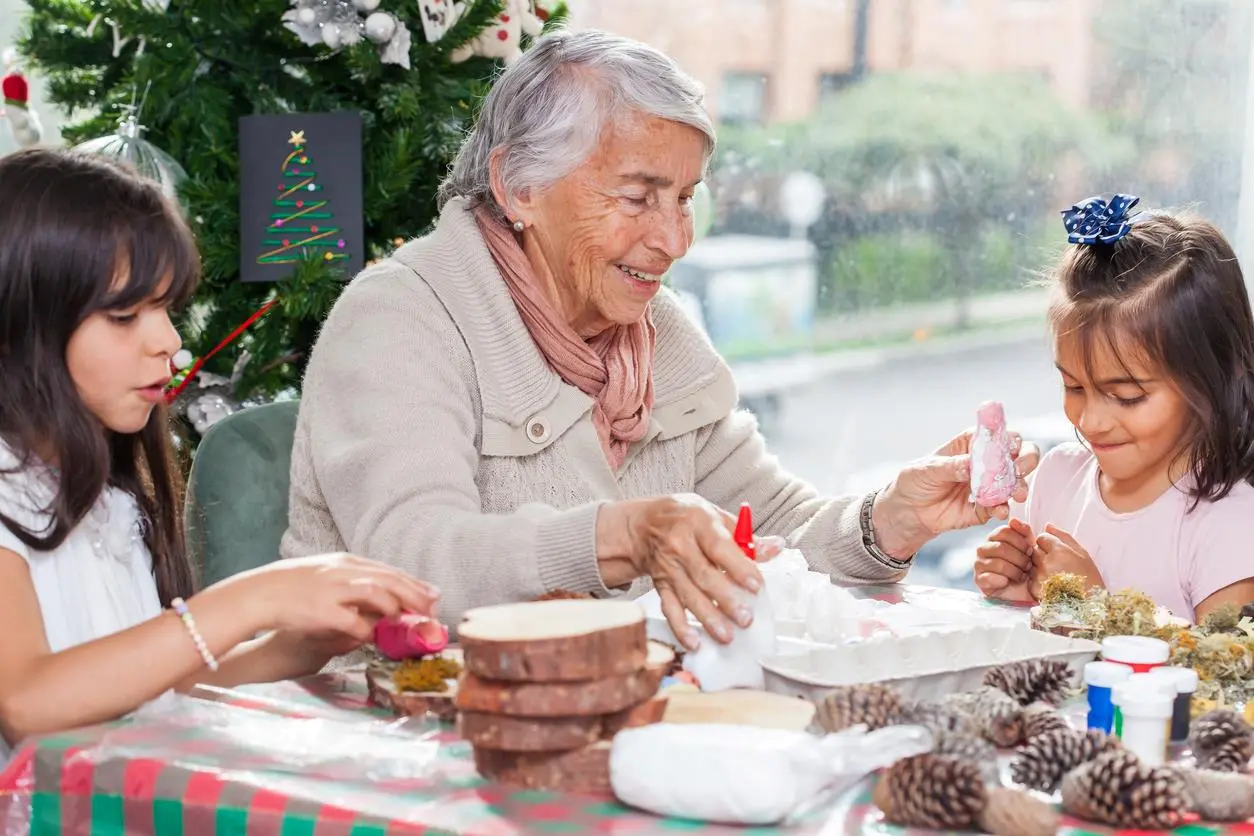Managing Holiday Stress While Caring for Elderly Family Members
For more than one in four Americans over the age of 50, the holiday season means balancing festivities with caring for elderly parents or loved ones. Whether you’ve recently taken on the responsibility of caring for Mom or Dad in their retirement or you’re an established sandwich-generation caregiver, discover tips for managing holiday stress with the Living Life at Home Nurse Registry team.
Tips for Caring for Elderly Parents During the Holidays
You may love having your aging parents at home for the holidays, but the responsibility of caring for them can easily overtake the joy of the season. While Christmas, Hanukkah, New Year’s Eve, and other holidays are meant to bring joy, they’re often bittersweet for older folks grappling with grief tied to this time of year.
Don’t let variables like shifting family dynamics, health issues, or a loss of traditions take away from your parents’ holiday spirit or yours. We recommend using a holistic approach to caring for elderly parents during the holidays by focusing on their:
- Mental health needs
- Social needs
- Physical needs
Watch for Symptoms of Seasonal Affective Disorder (SAD)
The holiday blues are real, especially for seniors, but a prolonged low mood may also be a sign of seasonal affective disorder (SAD). The exact cause of SAD is unknown, but shorter, colder days and less sunlight during the winter are suspected factors. It’s often an especially frustrating season for seniors feeling trapped indoors by snowy or icy conditions that increase their fall risk.
As part of caring for your elderly parents’ mental health during the holidays, keep an eye out for symptoms of seasonal affective disorder, such as:
- Sleeping too much or becoming lethargic
- Increased brain fog or confusion
- Noticeable irritability
- Trouble sleeping or insomnia
- A lack of appetite and weight loss
Explore Christmas Activities for Seniors

Mom or Dad may not be able to hang lights on the house anymore, but you can still make them feel like they’re part of the holidays with Christmas activities for seniors. Invite grandkids, cousins, aunts, and uncles over for a holiday decoration crafting night. You can even spend the evening putting them up around your home or on your tree! DIY ornaments are perfect for making memories and mementos with your older loved ones.
Other senior-friendly holiday crafts include:
Plan Healthy Meals

It’s easy to lose track of nutrition when faced with feasts full of holiday food, but healthy eating is vital for your older family members’ physical and mental well-being. While no food has to go on the naughty list, balance your Christmas treats with healthy main courses and sides like:
- Roast chicken. Simple, tasty, and a healthier alternative to roast beef or ham
- Twice-baked sweet potatoes. An alternative to mashed potatoes, rich in fiber and antioxidants
- Stuffed turkey breast. A healthy twist on a classic holiday dish
- Turkey minestrone. A dish that lets you transform leftovers into a taste sensation
Advice for Caring for Elderly Family at Home
Taking care of your elderly family at home often feels like a gift and responsibility. While you may be happy to have them live with you, it can feel overwhelming during the busy holiday season—especially if you’re a sandwich-generation caregiver. A sandwich-generation caregiver is a person who takes care of an older family member and a child at the same time, and nearly a quarter of U.S. adults fall into this category.
Whether or not you’re a sandwich-generation caregiver, juggling your elderly family members’ well-being and yours over the holidays can be challenging. Learn how to maintain a happy medium with insights from the Living Life at Home Nurse Registry team.
Maintain as Much Routine as You Can
When your older family members have a routine, it can help their self-esteem and confidence, and that still rings true during the holiday season. Try to keep meals at regular times, stay on top of their activity schedules, and remember medication schedules. If you plan to host any gatherings that may impact these routines, set extra reminders or timers on your phone.
Embrace Taking Care of Yourself
You can’t pour from an empty cup, so don’t forget to recharge during the holidays. A few ways you can take care of yourself while supporting your older family members include:
- Setting boundaries. It’s easy to say yes to every invitation you receive, but there’s no harm in gently turning down your fourth holiday cookie exchange for some downtime.
- Exercise. Even if it’s bedtime yoga or a walk around the block, staying active is vital for your mental health.
- Get enough sleep. Don’t let late-night festivities impact your energy—the average adult needs at least seven to nine hours of sleep. If you have early mornings or late nights as part of caring for a family member, try taking naps for a quick recharge.
Recognize and Accommodate Your Caregiver Limits
Everyone has their limits as a caregiver, especially if you’re part of the sandwich generation we discussed earlier. When the holidays stretch you past your threshold as a caregiver, consider connecting with Living Life at Home. We’re happy to discuss how one of our care providers can support you and your older loved ones.
Start Managing Holiday Stress With Living Life at Home Nurse Registry
When you need a helping hand while caregiving during the holidays turn to Living Life at Home Nurse Registry. We are dedicated to helping you and your older loved ones maintain autonomy and independence through comprehensive in-home care services.
From nursing care and medication management to help with daily tasks, contact us online to discuss how we can pair you with a nurse to support your caregiving needs in southeast Florida.
